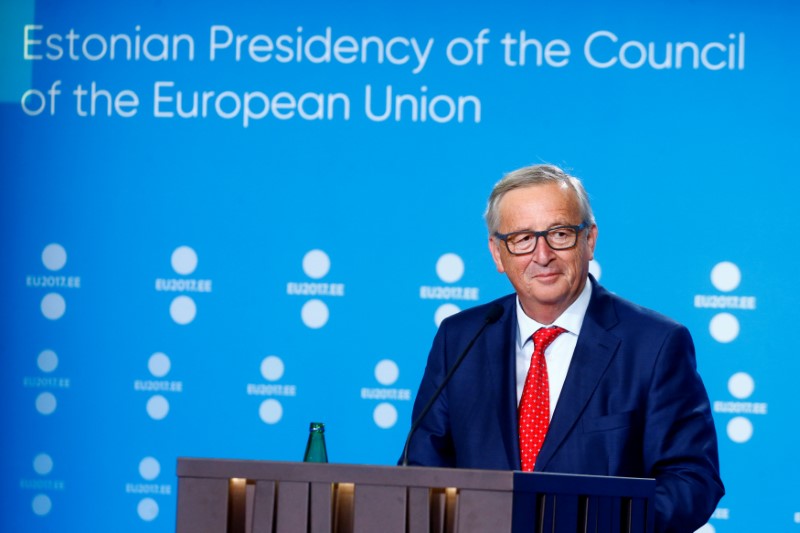TALLINN (Reuters) - The European Union's chief executive Jean-Claude Juncker confessed that he still does not own a smartphone on Friday but pledged to help build a "digital future" for the bloc.
He was speaking alongside the prime minister of Estonia, which has transformed its post-Soviet economy in part through new technology. As his government takes the rotating chair of EU councils, premier Juri Ratas called for a new free movement of data across EU borders to stimulate economic growth in the bloc.
"I shouldn't say it but I have to say it: I still don't have a smartphone," Juncker, the 62-year-old former prime minister of Luxembourg, told a news conference after Ratas had spoken.
The Baltic leader, 24 years his junior, had teased him about his lack of mobile connection, Juncker said, by sending him a postcard "like in the 19th century" to invite him to Tallinn.
"But even without being a techie I know that our future is digital," the European Commission president insisted.
"Digital is the DNA of your country and it needs to become part of the European DNA," he told Ratas.
A former Estonian premier runs the digital portfolio in Juncker's Commission in Brussels. The executive's program, backed by national governments, includes commitments to build a "digital single market" for Europe and favor tech investment.
"President Juncker said that he expects the Estonian presidency to make substantial progress especially in digital themes," Ratas said. "The free movement of data is a precondition for the Digital Single Market.
"To enable the free movement of data in Europe, trust and security need to be increased. To this end, we need to put our focus also on cybersecurity issues."

Estonia as built up its own cyber defenses for fear of disruption from neighboring Russia.